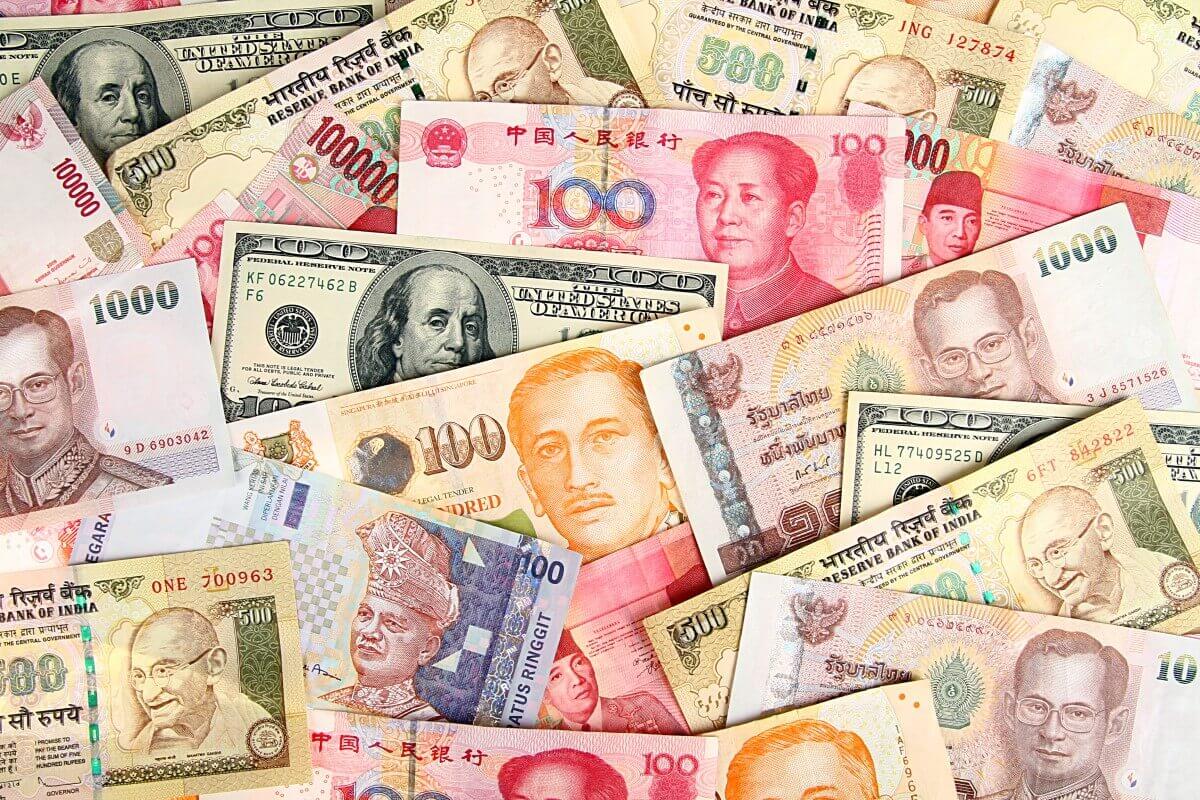The euro continued rallying on Thursday while traders closely watched for developments in talks between Russia and Ukraine. However, the Federal Reserve’s monetary policy decision didn’t affect the market much as the bar for a hawkish surprise was high. The euro climbed up by 0.2% at $1.106 today, after hitting a one-week high of $1.1067 earlier in the session.
The Russian government declared that the country was putting colossal energy into talks on a possible peace deal with Ukraine. Meanwhile, an adviser stated that Ukrainian President Volodymyr Zelensky maintained his position that Ukraine’s international borders must be recognized.
Commerzbank analysts also noted that what is important for the Forex market is whether the likelihood of an energy crisis decreases. The latter would be clearly inflationary, as well as relevant to the exchange rate for many reasons. Analysts think that a very fragile peace would perhaps only help moderately in that respect.
Meanwhile, the Federal Reserve kicked off its monetary policy tightening with a quarter-percentage-point rate increase yesterday. New projections showed that policymakers are ready to shift their inflation fight into high gear.
Unicredit analysts stated that considering the very hawkish FOMC meeting, Wednesday’s market reaction was not particularly impressive, indicating that traders were already pricing in a rather aggressive hiking cycle. On Thursday, the dollar index plummeted down by 0.2% at 98.325 after dropping to a one-week low of 98.151 against the basket of six major currencies.
Economists said that the USD forward curve had already incorporated a heavy degree of tightening before the FOMC meeting. The latter may slow the intensity of further greenback appreciation.
How is the Japanese Yen faring?
The Japanese yen declined by 0.1% to 118.63, trading within striking distance of its lowest level since February 2016. The currency had hit it on Wednesday, falling to 119.12 as the Bank of Japan ruled out tightening monetary policy.
BoJ Governor Haruhiko Kuroda announced that the country is unlikely to see inflation hitting a target of 2%, even accounting for soaring energy costs. The bank will probably decide to keep monetary policy ultra-easy at its policy meeting due on Friday.
On Thursday, the British Pound tumbled down against the euro and the greenback after the Bank of England raised interest rates as investors expected. However, the bank has also softened its language on the need for further increases. Forex markets are currently pricing less than 120 bps of rate hikes by year-end.
Meanwhile, the Australian dollar surged forward by 0.6% to 0.7333 versus the dollar. Reports said employment sped past market expectations in February as activity recovered surprisingly quickly from an Omicron variant outbreak.
What about the Russian rouble?
The Russian rouble strengthened in Moscow on Thursday. Even though it saw volatile trade offshore, the currency stayed weaker than 100 to the U.S. dollar in both markets. Traders are watching Russia-Ukraine talks, as well as foreign currency coupon payments on Russia’s sovereign debt.
The Russian government announced that it had made debt payments that were due this week. However, this statement did not end a wait for what could be the country’s first default on external borrowing in more than a century. Creditors said they hadn’t received the funds yet.
Today, the rouble gained 2.2% against the greenback at 105.6 and had added 1.5% to trade at 115.9 versus the euro. These are small moves compared to recent wild swings, though. Besides, on foreign exchanges, the currency plunged sharply back to trade in line with the rate in Moscow. It dropped by almost 16% on the day.
Russia struggles with Western sanctions
International outrage over war in Ukraine grew on Thursday while fighting continued. Western nations have imposed unprecedented sanctions against Russia in response. Those sanctions have already triggered the worst economic crisis in Russia since the fall of the Soviet Union in 1991.
BCS Global Markets noted that global markets became optimistic on the Russia-Ukraine front due to headlines that each camp was talking about the potential for real compromise emerging on some core issues. Meanwhile, Russia’s annual inflation soared to 12.54% as of March 11, hitting its highest level since late 2015. At the same time, shortages and a sharp surge in sugar prices led the competition watchdog to start investigating major sugar producers.
The Moscow stock market remained largely closed by order of the central bank. It will stay so for the rest of the week. Stocks had last traded in Moscow on February 25. After that, the central bank imposed restrictions.










